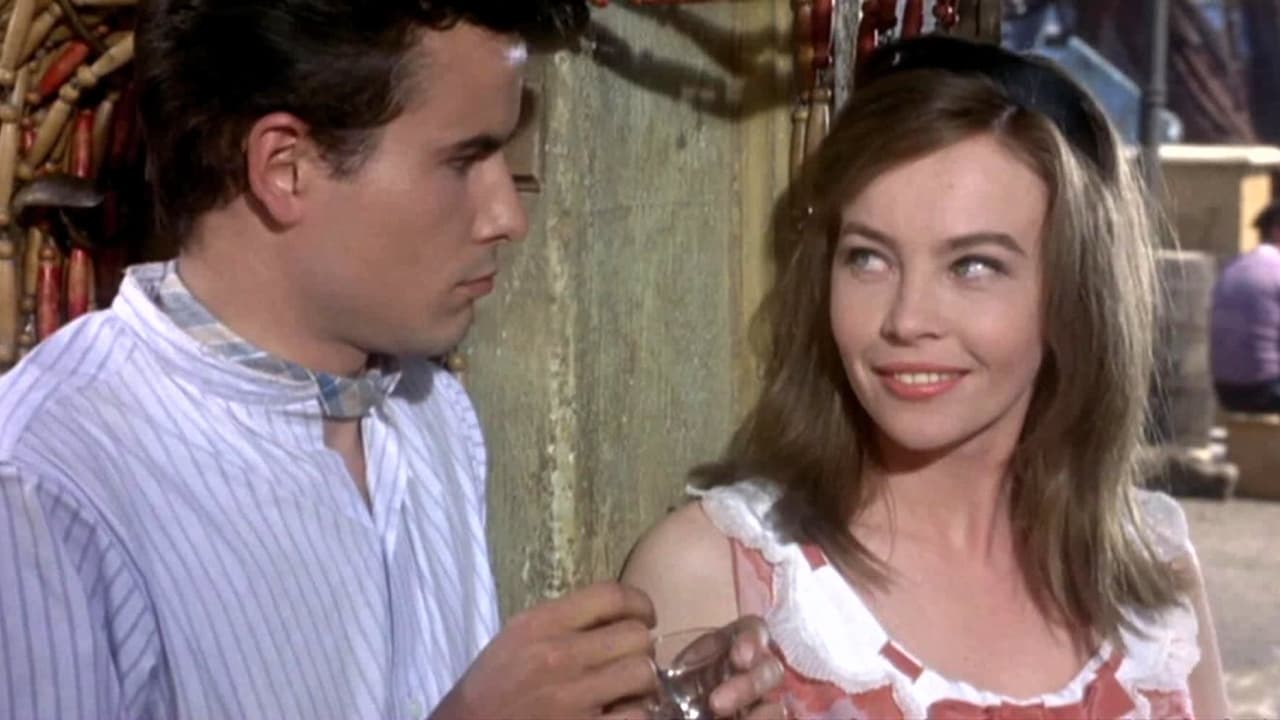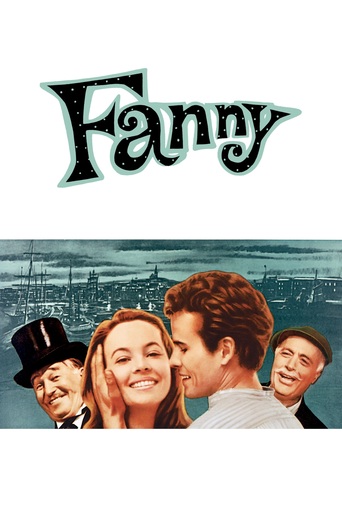Matrixiole
Simple and well acted, it has tension enough to knot the stomach.
Sammy-Jo Cervantes
There are moments that feel comical, some horrific, and some downright inspiring but the tonal shifts hardly matter as the end results come to a film that's perfect for this time.
Sameer Callahan
It really made me laugh, but for some moments I was tearing up because I could relate so much.
Ezmae Chang
This is a small, humorous movie in some ways, but it has a huge heart. What a nice experience.
calvinnme
This is one of the sweetest movies I've ever seen. When I say the movie is sweet, it manages to do so without being cheesy. Leslie Caron is in the title role as a young woman who finds herself pregnant after consummating her relationship with Marius, a young man who has a lust to travel and hates being tied down. The next day he leaves for the long sea journey that he's longed for since childhood. When Fanny learns of her condition, she accepts a proposal from the elderly Panisse (Maurice Chevalier) and he gives all of his love and acceptance to both her and her child. Marius returns after the child is born, never having known until he returns that he is a father. He wants Fanny back, and he and Panisse square off in a showdown over both Fanny and her child. However, Fanny has something to say about this too. It's a great film about love, responsibility, selfishness, and the root of true happiness.It is my favorite Leslie Caron movie and a great role for Chevalier in his later years. After having just recently seen the Ernst Lubitsch musicals Chevalier starred in thirty years before, I have to say he may have grayed but he never lost that essential indescribable charm he had in his youth.
bkoganbing
Though I would love to have heard some of Harold Rome's songs sung on screen as a straight dramatic story, Fanny does quite well. Maybe director and co-author Joshua Logan knew what he was doing when he brought Fanny to the screen that way.Fanny is set in France's second city of Marseilles which has a better reputation as being a lot like Chicago and not just in population. Most stories set in Marseilles concentrate on the city's underworld.But this one concerns their most ancient industry, fishing and some of the characters on their waterfront. Charles Boyer is a tavern owner and he's got a son Horst Buchholtz who dreams of going to sea and a life of adventure, as a lot of young men will. But a fishmonger's's daughter named Fanny played by Leslie Caron's got eyes only for him. And one night's roll in the hay leaves Fanny something to remember him by.Not to fear though, aging shop-owner Maurice Chevalier, a recent widower would like what the Americans call a trophy wife. He's ready to save her good name and marry the girl and bring the kid up as his own.Before the Broadway musical the original story was told in French cinema in a three part trilogy by Marcel Pagnol. The parts that Boyer, Caron, Buchholtz, and Chevalier play were done on Broadway by Ezio Pinza, Florence Henderson, William Tabbert and Walter Slezak. Slezak got a Tony Award. The play ran 888 performances in 1954 to 1956.The most prominent song in the musical was the title song Fanny which Eddie Fisher had a hit record from. It and the rest of the score is heard in the background.Fanny was up for several nominations for Oscars including Best Picture, Best Actor for Charles Boyer and Best Director for Joshua Logan who primarily worked on stage. Still the award it should have gotten was for Jack Cardiff's color cinematography. He's one of the very best at his game and he makes the colorful city of Marseilles the biggest star in this film.Fanny holds up very well as fresh as when I saw it in the theaters in 1961. You might even consider visiting Marseilles after seeing this film.
bandw
This story of a young Frenchman, Marius, who makes an anguished decision to pursue his personal passion for sailing the open seas at the expense of foregoing the love of the beautiful Fanny (Leslie Caron) would have played well as a straight drama, but it is undermined by scenes hardly worthy of a situation comedy. This is unfortunate since there are quality actors on board and some truly dramatic scenes.Consider the game that the older folks play while sitting outside Marius' father's bar. They set out a large rock and cover it with a hat and wait for passersby to kick it. For one thing I don't think it is a normal reaction to want to kick a hat that is sitting alone on a busy sidewalk. Secondly, serious injury could result if someone were so inclined to kick it. The poor priest who took the bait is seen limping off after his experience - I felt sorry for him and irritated with the perpetrators who found this so humorous. It is astonishing how many things are wrong with that scene, but the main problem is that it sets an inappropriate tone for what is to come. This low tone is continued in the scene where the seventy-year-old Maurice Chevallier puts the moves on the young Caron provoking a melodramatic response of jealousy in Marius - that scene indeed could come right out of a situation comedy, as could so many others. In spite of the significant themes that are to come we get the feeling that nothing serious is really going on here.We very quickly arrive at the crucial scene where Marius decides to sign on to a seagoing scientific ship for a five year tour. This just after he and Fanny have consummated their love on the previous night. This key scene is poorly motivated - we have little appreciation for Marius' passion for the sea and a minimal understanding of the relationship between Marius and Fanny. There might as well just have been a voice-over saying that Marius loved both the sea and Fanny.There are many plot inconsistencies. In one of the final scenes Marius is called on an emergency mission while at work as a grease monkey. He arrives dressed in a suit.Meaningful themes are dealt with such as the relationships between parents and children, conflicting desires, difficult decisions, pragmatism versus passion, friendship, failure to communicate, and sacrifice. Great material whose potential is only occasionally realized.The filming is quite beautiful. There is one scene that lingers in the mind that has the young lovers embracing in an alleyway lighted by an amber street-lamp. The Marseille setting is used to great effect and probably has accounted for some increased tourism.Leslie Caron alone makes this worth the time and it *is* fun to see Charles Boyer and Maurice Chevalier play off each other. Horst Bucholz was a handsome young man - quite a shock to see him thirty-six years later in "Life is Beautiful." No one escapes the effects of aging.
tz227
I saw 'Fanny', for the first time, in a theater in 1962 and have never been disappointed on any of the scores of times viewing it since. The acting of the entire crew is their best, in my opinion. The casting could not have been better and the scenery... magnificent!! I now own the 1930's version of the trilogy and haven't watched it (don't want to spoil the 1961 version). The story is about a young couple, growing up in a seaport in France, and fall in love. The boy, Marius, also loves the sea and when a sailing ship comes in, he leaves for the 'islands beneath the wind'. after being gone for five years, he returns to visit his father, and what he finds changes his life. A must see.

